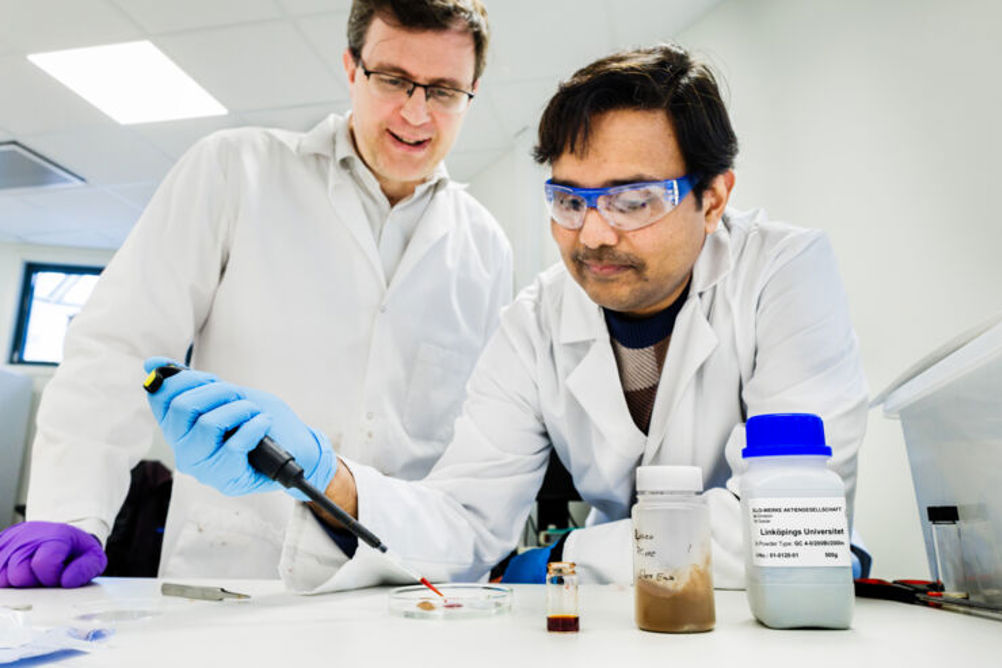Lignin – a waste product from the paper industry – and zinc – an abundant metal – are both recyclable and cheap. While zinc is already widely used in disposable batteries, its use in rechargeable batteries has been hampered by durability issues, as it reacts with water in electrolyte solutions to produce hydrogen gas and dendritic growth.
Related content
To overcome this, the researchers used a potassium polyacrylate-based water-in-polymer salt electrolyte (WiPSE), which stabilises the zinc. The Swedish team, which included members from Linköping, Karlstad and Chalmers universities, demonstrated that a zinc-lignin battery with WiPSE could be cycled more than 8,000 times, while still retaining 80 per cent of its performance. The work is published in Energy & Environmental Materials.
“Our sustainable battery offers a promising alternative where energy density is not critical,” said Ziyauddin Khan, a researcher at the Laboratory of Organic Electronics at Linköping University.
“While lithium-ion batteries are useful when handled correctly, they can be explosive, challenging to recycle, and problematic in terms of environmental and human rights issues when specific elements like cobalt are extracted.
“Both zinc and lignin are super cheap, and the battery is easily recyclable. And if you calculate the cost per usage cycle, it becomes an extremely cheap battery compared to lithium-ion batteries.”

According to the researchers, the zinc-lignin battery has energy density equivalent to lead-acid batteries, but without relying on toxic elements. The batteries developed so far in the lab are small, but the team believes it can create larger units roughly the size of a car battery that could be paired with solar, holding their charge for up to a week. Mass production, however, would require the involvement of commercial partners.
“Solar panels have become relatively inexpensive, and many people in low-income countries have adopted them,” said Reverant Crispin, professor of organic electronics at Linköping. “However, near the equator, the Sun sets at around six PM, leaving households and businesses without electricity. The hope is that this battery technology, even with lower performance than the expensive Li-ion batteries, will eventually offer a solution for these situations.
“We can view it as our duty to help low-income countries avoid making the same mistakes we did. When they build their infrastructure, they need to start with green technology right away. If unsustainable technology is introduced, it will be used by billions of people, leading to a climate catastrophe.”











Invinity to build 20MWh flow battery in UK
Redux flow cells have had nowhere near the R+D effort compared to Lithium ion. They certainly have the potential (pun not intended) for longer...